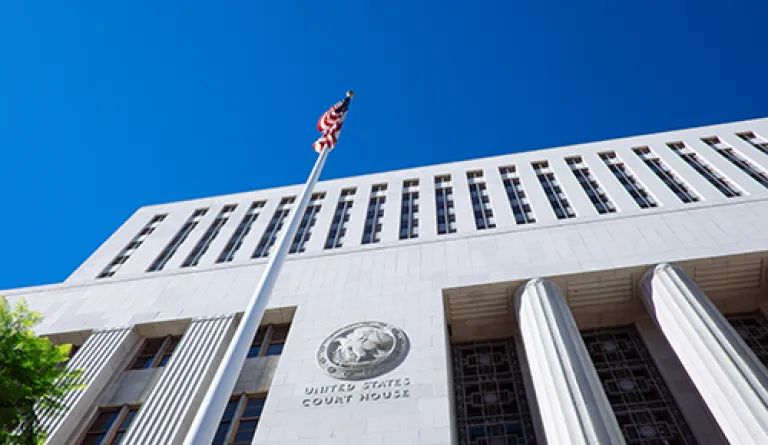Federal Courts Continue to Tackle the Challenges of Reopening and Restarting Jury Trials amidst Pandemic

As the whole country grapples with reopening, our federal courts continue their own efforts to respond in the wake of the COVID-19 pandemic. On April 24, 2020, the Administrative Office of the U.S. Courts distributed Federal Judiciary COVID-19 Recovery Guidelines for restoring operations, which rely heavily on the conditions of local communities as well as local and state orders and data. The guidelines note that “[b]ecause each state and municipality is in a different posture in the fight against COVID-19, each circuit and district will have to make local decisions on operational status based on the jurisdiction’s current COVID-19 case count and local stay-at-home and quarantine orders. This national guidance is designed to help facilitate decision making at the local level.” The guidelines include a set of phases, and federal courts around the country are progressing through those phases based on local conditions.
In recent weeks, we are seeing these federal courthouses slowly expand in-person proceedings. The Eastern District of Virginia issued an order on May 26 stating that, as of June 11, in-person proceedings would “no longer be strictly limited to critical or emergency proceedings.” The order provides that, with social distancing safeguards in place, civil and criminal bench trials will resume, along with trials of misdemeanors, traffic, and petty offenses. The Northern District of Alabama issued an order on May 4 terminating its prior prohibition on conducting hearings and conferences in the courthouses and providing that “district and magistrate judges shall individually determine when it is appropriate to conduct such in-person hearings on a case by case basis.”
These in-person proceedings remain the exception, however, with many of the orders recognizing that proceedings will continue to rely on teleconference and videoconference as the default. The Alabama order says that “[a]s long as the current National Emergency continues, unless it is necessary for a hearing to be in-person, such hearings should be conducted by teleconference or video teleconference.” This has become the norm across our federal courts, with most judiciary personnel nationwide working remotely and courts using video and teleconferencing technology for both criminal and civil matters.
The Supreme Court has joined these efforts, and for the first time is hearing oral arguments by teleconference rather than in the courtroom. In a break from tradition, the arguments have also been broadcast via live audio. This has led to a new level of engagement by the public, as well as those who closely follow and analyze the Court’s arguments.
While the numbers of jury trials remain low in our court system, the jury trial itself is a bedrock of our justice system. As such, it is a focus of the courts and many organizations around the country in light of the pandemic. The federal judiciary has created a COVID-19 Judiciary Task Force, and its the Jury Subgroup—which is comprised of federal trial judges, court executives, and representatives from the federal defender community and the Department of Justice—has recently released a report on Conducting Jury Trials and Convening Grand Juries During the Pandemic.
The report recognizes that “[w]hen each court determines that the time is right, the judiciary must reconstitute jury trials during the COVID-19 pandemic.” The report includes “preliminary suggestions and ideas for courts to consider when restarting jury trials,” noting that there “is no one-size fits all approach, and not all of the suggestions will be necessary, practical, or feasible in all districts.” The intent of the guidance is to “assist each court in devising protocols that will minimize the risks to all participants and spectators, including jurors, attorneys, witnesses, parties, members of the public, the press, and court employees.” The report also notes that the guidelines will be updated to provide the most recent developments as trials restart.
At the same time, the federal courts are looking forward. The Committee on Rules of Practice and Procedure and its five advisory committees have invited public input on possible rule amendments that are needed to deal with future emergencies. Congress has directed the Judicial Conference and the Supreme Court to consider such amendments in light of the experiences and lessons learned throughout the pandemic, and that effort is already underway.
